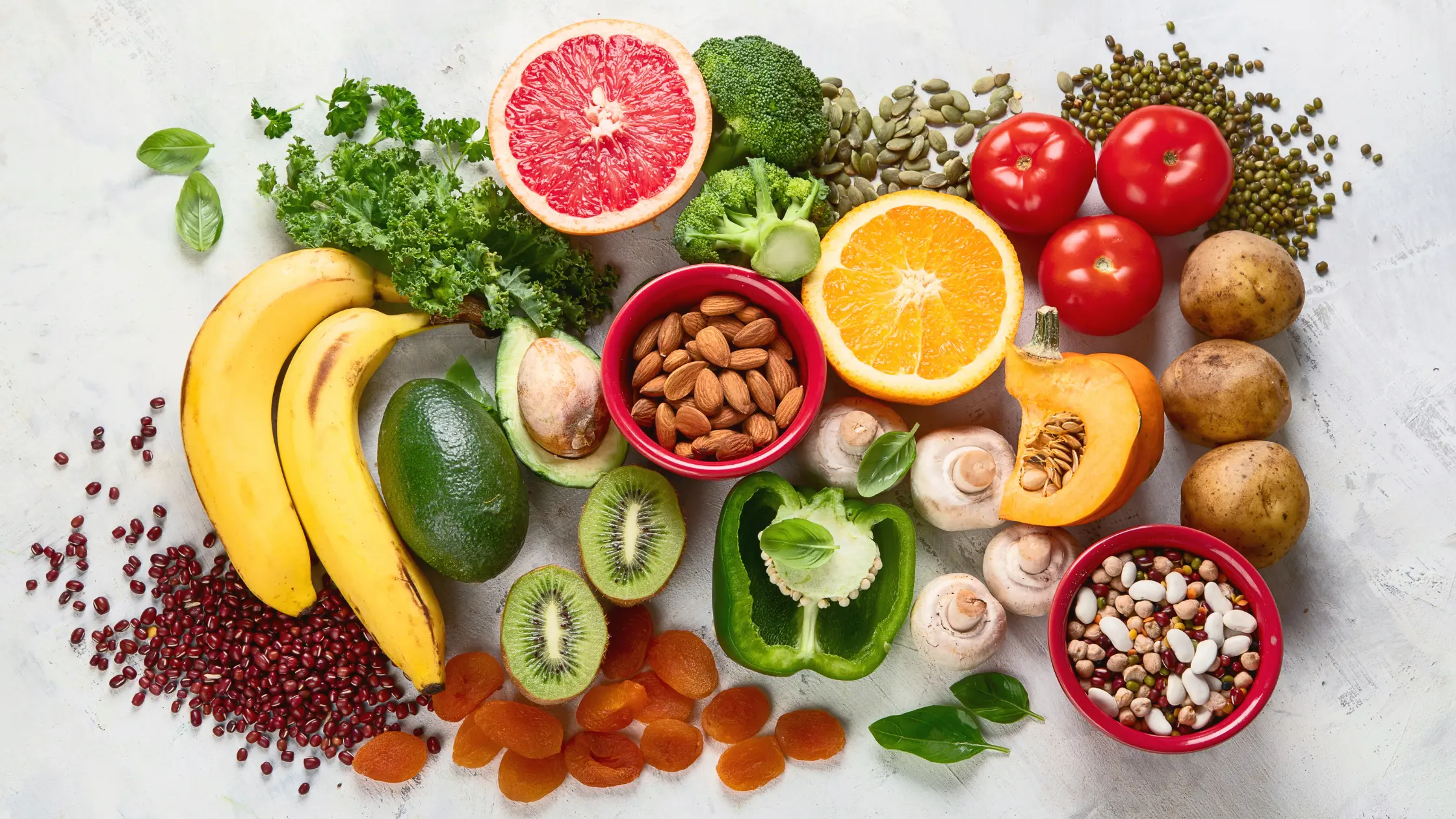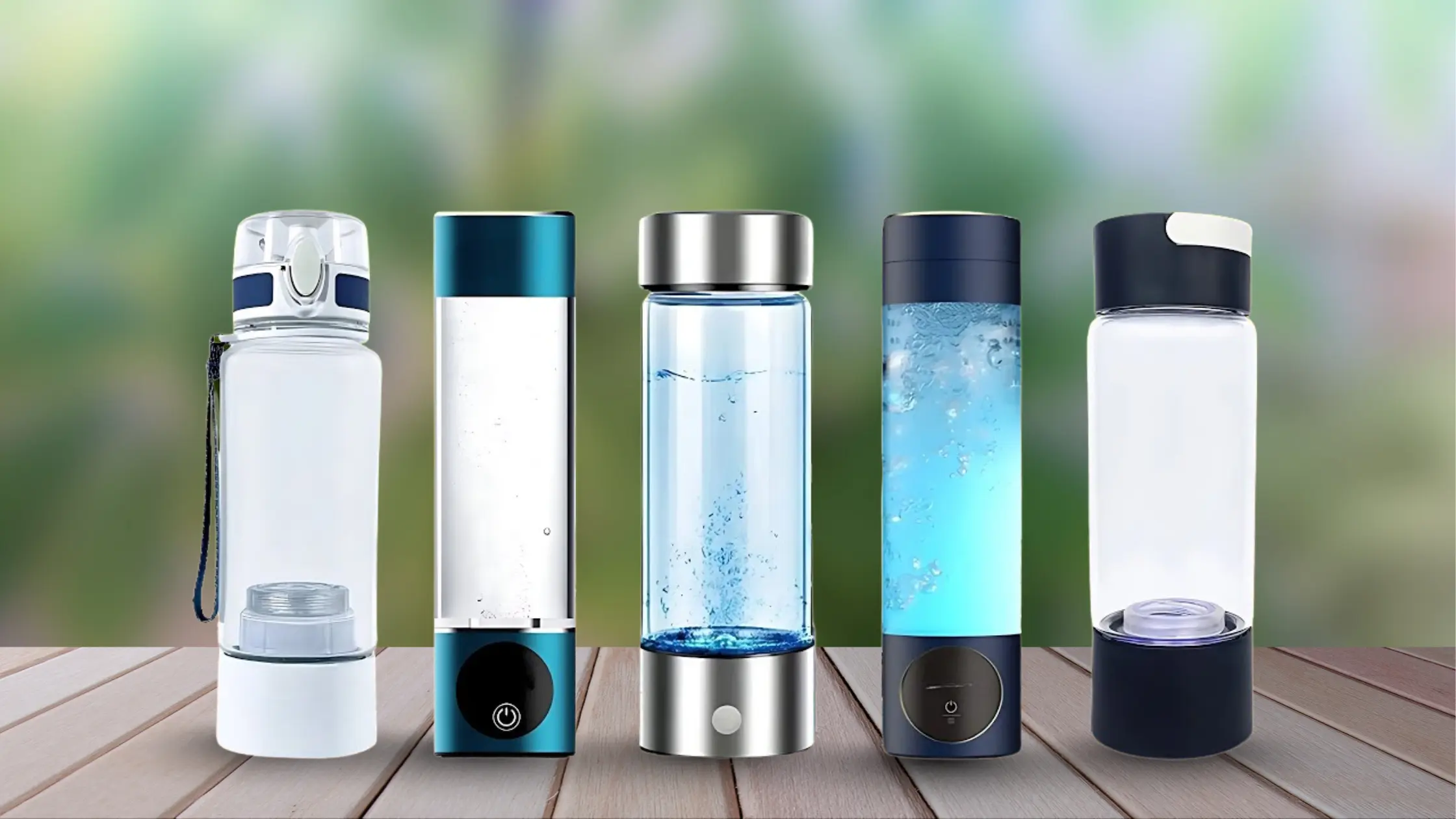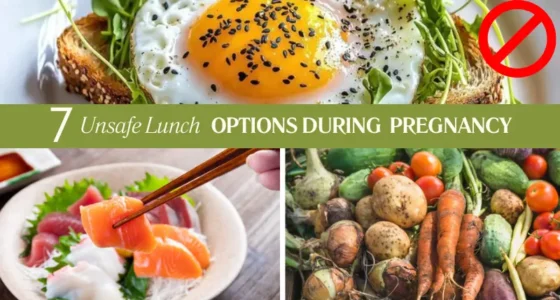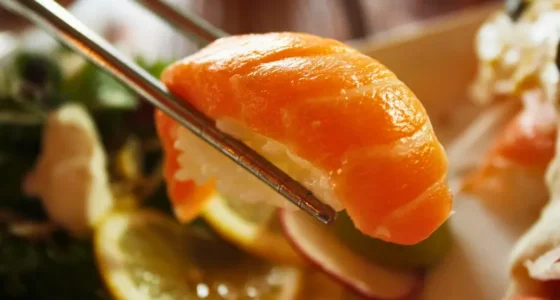High potassium foods to avoid are an essential consideration for any pregnant woman, especially for those with heart and kidney issues. Although potassium plays a critical role in fluid balance, nerve conduction, and muscle contraction, it should be monitored with care when there are complications with the heart or kidneys in pregnancy. In this comprehensive guide, we’ll explore why it’s important to monitor potassium intake, what foods are best to avoid, and how to protect your health and your baby’s while ensuring optimal nutritional support.
Table of Contents
- Why High Potassium Foods Are a Concern for Pregnant Women with Heart & Kidney Issues
- How High Potassium Foods Impact Heart and Kidney Health During Pregnancy
- High Potassium Foods to Avoid During Pregnancy with Heart and Kidney Issues
- What Are the Main Types of High Potassium Foods to Avoid During Pregnancy
- Foods to Include Instead High Potassium Foods to Avoid for a Heart and Kidney-Friendly Diet
- FAQ: High Potassium Foods to Avoid During Pregnancy
- Conclusion: High Potassium Foods to Avoid
Why High Potassium Foods Are a Concern for Pregnant Women with Heart & Kidney Issues
Pregnancy introduces a multitude of physical changes that can affect how your body processes potassium. The increased blood volume, fluctuating hormones, and kidney function changes can all make it difficult for your body to regulate potassium levels. For women with heart or kidney issues, these changes can become even more complicated, as the organs responsible for potassium balance may already be under strain.
In cases where potassium levels are too high, it can lead to serious complications like:
Heart arrhythmias:
Potassium is essential to normal heart activity, and excessive levels may result in abnormal heartbeats, which could also result in more life-threatening conditions, including fainting, dizziness, and even sudden cardiac arrest. These life-threatening heart rhythm abnormalities can be avoided by measuring the level of potassium and maintaining the healthy condition of both the mother and the baby.
Kidney stress:
Pregnant women who have kidney problems may have a hard time absorbing the extra potassium in the body, causing additional kidney stress, a high risk of kidney failure, and fluid retention. This may also lead to hypertension and worsen any existing kidney issues, making the pregnancy difficult and also impacting health.
Muscle weakness or cramping:
Elevated potassium can affect muscle function, leading to cramps or weakness, which can be painful and reduce mobility. In severe cases, it can interfere with daily activities and increase the risk of injury. It can also cause a lack of coordination, making it harder to maintain balance and physical activity during pregnancy.
Managing potassium intake becomes a matter of health preservation—not just for the mother, but for the growing baby as well.
How High Potassium Foods Impact Heart and Kidney Health During Pregnancy
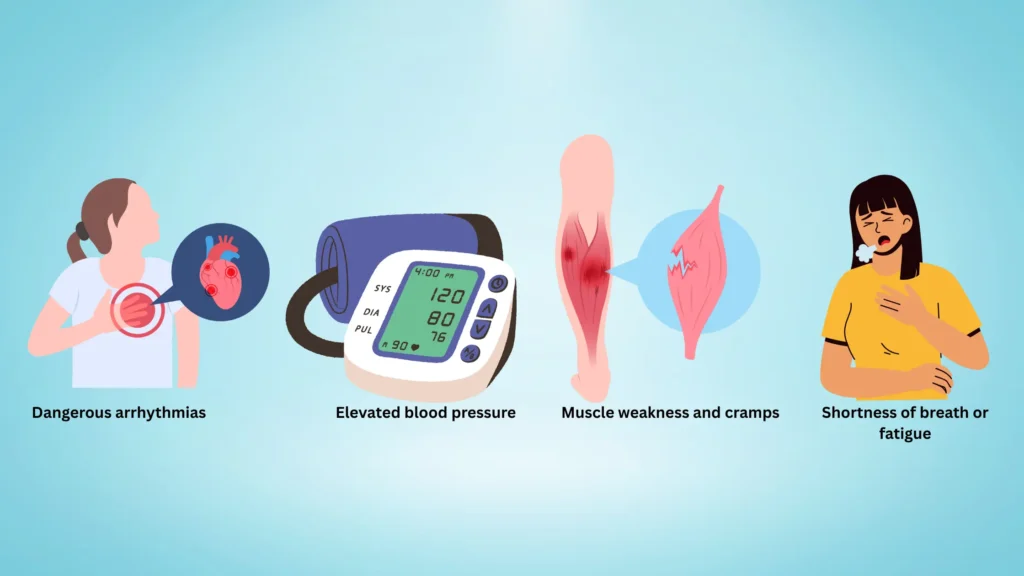
High potassium food affects the bladder and heart conditions by putting an extra strain on these critical organs, which are already at work overtime during pregnancy. The kidneys process potassium majorly; hence, when they are impaired, the body may not effectively eliminate surplus potassium. This may cause a condition referred to as hyperkalemia, or excessive potassium in the blood. If left unchecked, hyperkalemia can result in:
Dangerous arrhythmias (irregular heart rhythms):
Life-threatening irregular heart rhythms (dangerous arrhythmias): High potassium levels may disrupt the electrical impulses that control the heart, causing potentially fatal irregular heart rhythms, making heart failure or a stroke dangerous unless treated.
Elevated blood pressure:
Overload of potassium can result in kidney strain, resulting in fluid retention that increases blood pressure, putting extra cardiovascular stress on the body, and increasing the risk of pregnancy complications such as preeclampsia.
Muscle weakness and cramps:
When the potassium is high, it can interfere with muscle activities by preventing nerve signals from reaching their active sites, causing painful muscle weakness, cramps, or spasms, which affect mobility and everyday life, particularly of the legs and arms.
Shortness of breath or fatigue:
High potassium levels strain the heart and respiratory muscles, reducing oxygen flow to the body, causing fatigue, dizziness, and shortness of breath, which can impair overall physical endurance during pregnancy.
High Potassium Foods to Avoid During Pregnancy with Heart and Kidney Issues
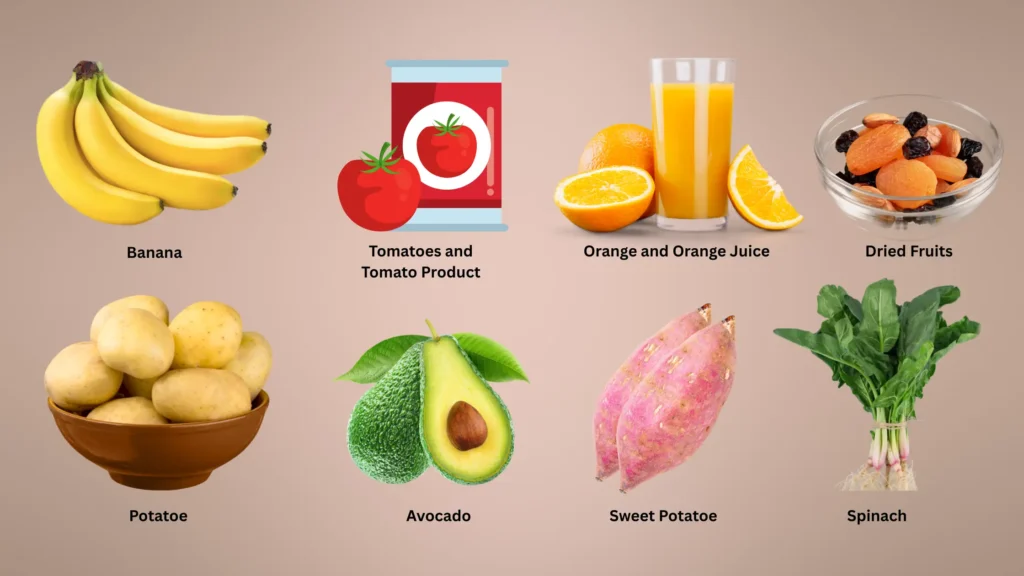
To control your intake and reduce risks during pregnancy, it is essential to know which high-potassium foods to avoid. The following is a list of foods that should be limited or avoided to prevent damage to the heart and kidneys:
Bananas
Bananas are a popular snack, but are also among the highest potassium foods. One medium banana contains approximately 450 milligrams of potassium. For women managing heart or kidney issues during pregnancy, consuming bananas should be limited to prevent any adverse effects on heart rhythm or kidney function, which could lead to more serious complications if consumed in excess.
Potatoes
Potatoes, particularly when consumed in large portions or unpeeled, can contain over 900 milligrams of potassium in a medium-sized serving. This makes potatoes one of the foods high in potassium to avoid if you’re looking to regulate your intake. Excessive consumption may increase kidney overload and increase the possibility of heart arrhythmia during pregnancy, particularly in women with underlying conditions.
Tomatoes and Tomato Products
Tomatoes, along with tomato sauce, paste, and juice, are all rich in potassium. A cup of tomato sauce can provide up to 800 milligrams of potassium. Limiting the use of these products is advised, particularly if you have heart or kidney issues. Foods containing tomatoes have the ability to dramatically raise potassium levels, which may result in harmful cardiac arrhythmias or excessive kidney strain.
Avocados
Although avocado is rich in healthy fats, it is highly rich in potassium, with a medium-sized avocado containing approximately 700 milligrams. When you have kidney or heart problems, it would be better to keep an eye on your avocado consumption when pregnant. They are healthy but contain lots of potassium, which can put pressure on the kidneys and compromise heart health, resulting in possible complications in women with sensitive kidney processes.
Oranges and Orange Juice
Citrus fruits like oranges are a great source of vitamin C, but also have a high potassium content. One medium orange contains about 240 milligrams, and a cup of orange juice may contain up to 450 milligrams or more. Be cautious of these foods when regulating your potassium intake. Overconsumption can aggravate kidney function or contribute to irregular heartbeats if potassium is not managed effectively.
Sweet Potatoes
Similar to regular potatoes, sweet potatoes are a potassium-rich food. A medium sweet potato can contain about 400 milligrams of potassium. Consider limiting sweet potato consumption to avoid excessive potassium, especially if you’re pregnant with kidney or heart issues. Eating these regularly could lead to potassium buildup, complicating heart and kidney health during pregnancy.
Dried Fruits
Potassium is concentrated in dried fruits, such as apricots, dates, and raisins. Up to 500 mg of potassium can be obtained from a tiny handful. If you’re managing heart or kidney health during pregnancy, it’s wise to avoid or limit dried fruits. Due to their concentration, dried fruits can quickly push potassium intake beyond the recommended limits, placing strain on both the heart and kidneys.
Coconut Water
Coconut water is a popular beverage for its hydrating properties, but it is also high in potassium. One cup of coconut water can contain about 600 milligrams of potassium, so it should be consumed in moderation or avoided during pregnancy if you have kidney or heart concerns. The frequent usage may raise the level of potassium, causing stress to the kidneys and distorting the heart rhythm in pregnant mothers.
Spinach
Spinach, although healthy, is highly potassium-containing. A cup of cooked spinach may contain more than 800 milligrams of potassium. You should also not take large quantities of spinach if you are controlling the levels of potassium. The high potassium content can lead to muscle weakness or cramping and may exacerbate kidney stress, making it critical to monitor your intake if you have heart or kidney issues.
Mushrooms
Mushrooms, especially such varieties as portobello, shiitake, etc., contain large amounts of potassium. Approximately 450 milligrams of a cup of cooked mushrooms can be found. Monitor the sizes of portions and eat other vegetables with less potassium where feasible. The overconsumption of mushrooms may cause a potassium load, which may cause arrhythmias in the heart or overstrain the kidneys during pregnancy.
What Are the Main Types of High Potassium Foods to Avoid During Pregnancy
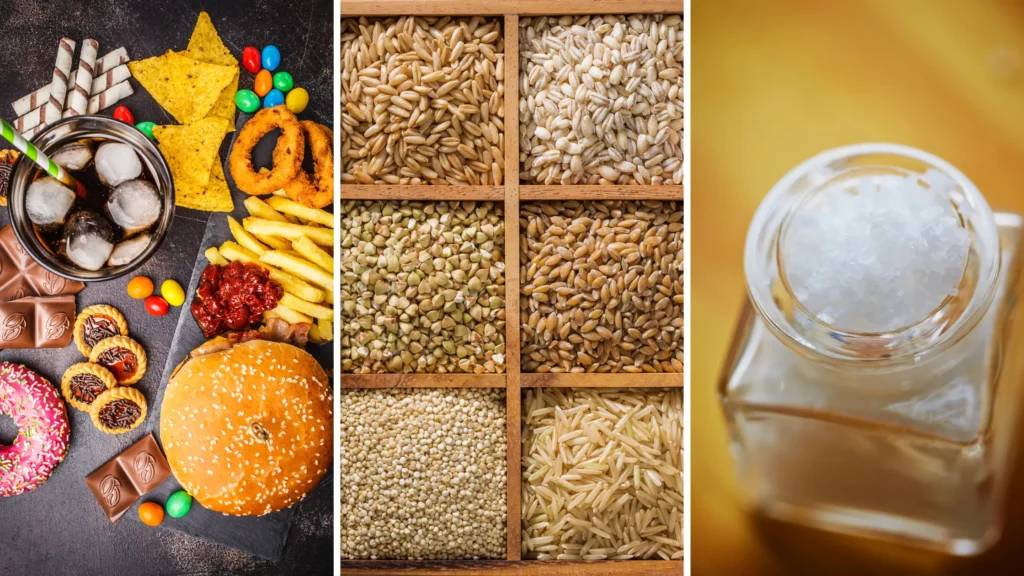
If you have high levels of potassium, it is more important to control your diet. Other than the foods mentioned above, you should also keep in mind to avoid or limit the following:
- Processed foods: These often contain potassium chloride as a salt substitute, which can significantly increase potassium intake. While these foods are convenient, they can contribute to excessive potassium levels, especially for pregnant women with heart and kidney issues. Regular consumption can strain kidney function and cause heart rhythm disturbances, leading to serious health risks.
- Salt substitutes: Many of these products are high in potassium and should be avoided during pregnancy. Potassium chloride is commonly used in salt alternatives, which can unknowingly increase potassium levels. For women with heart or kidney concerns, consuming these substitutes can result in dangerously elevated potassium levels, potentially leading to heart arrhythmias and further kidney complications.
- Whole grains: Some whole grains, like quinoa and brown rice, can contain moderate to high amounts of potassium. While whole grains offer numerous health benefits, including fiber and nutrients, their potassium content can interfere with maintaining proper levels during pregnancy. It’s important to balance the intake of whole grains with lower-potassium foods to avoid overwhelming the kidneys and affecting heart health.
Foods to Include Instead High Potassium Foods to Avoid for a Heart and Kidney-Friendly Diet
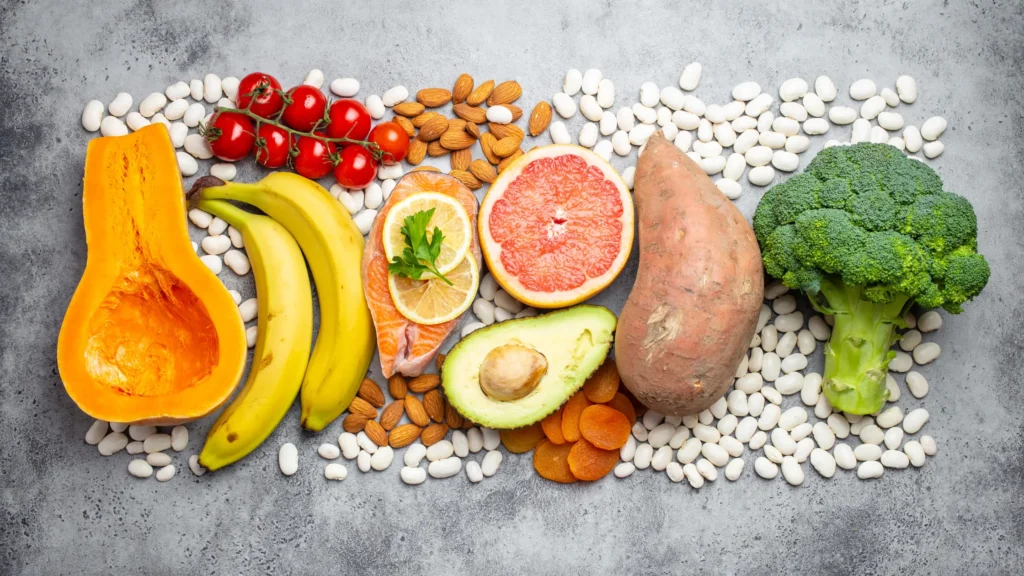
Focusing on low potassium foods to avoid while maintaining a balanced, healthy diet is key to managing heart and kidney health during pregnancy. You can include:
- Low-potassium fruits: Apples, berries, and grapes are also good options when it comes to pregnant women regulating their levels of potassium. These fruits are naturally rich in low potassium content, as well as contain vital vitamins, fiber, and antioxidants; hence, they are the best in supporting a balanced diet without overworking the kidneys or heart during pregnancy. They are healthy and refreshing, and they are effective in balancing potassium levels.
- Vegetables: Low-potassium veggies that are safe to include in a pregnant woman’s diet include lettuce, cucumbers, and carrots. These vegetables are low in potassium and high in nutrients, giving you the vitamins and minerals you need without straining your heart or kidneys. Including them in meals promotes general health by preserving potassium balance.
- Lean protein: Good sources of lean protein include chicken, turkey, and fish, including cod and tilapia, which contain less potassium than other foods with substantial amounts of protein. These choices offer the body the building blocks needed to repair muscles and tissues and are gentle on the kidneys and heart. Including these in your diet helps support healthy growth for both mother and baby without adding excess potassium.
- Grains: White rice and pasta are refined grains that contain less potassium than whole grains; hence, they are more suitable for those who are worried about the amount of potassium they consume. Although they do not have the same amount of fiber as whole grains, they can also be used to balance out your potassium levels without making the meal less than whole and satisfying. These grains are also less harmful to the kidneys and are a safe option when potassium control is required in the course of pregnancy.
You can keep your potassium and other vital nutrients in a healthy balance during your pregnancy by concentrating on these foods.
FAQ: High Potassium Foods to Avoid During Pregnancy
Q1: Why should I avoid high potassium foods during pregnancy with heart and kidney issues?
High potassium foods can cause dangerous health complications, including arrhythmias, muscle weakness, and further kidney strain. Limiting these foods helps ensure proper heart and kidney function.
Q2: What foods are considered high in potassium that I should avoid?
Some of the highest potassium foods include bananas, potatoes, tomatoes, avocados, and dried fruits. Limit the consumption of such foods when pregnant, particularly when you have problems with the heart or kidneys.
Q3: How can I manage potassium levels while pregnant with kidney issues?
To manage potassium, avoid foods like bananas, potatoes, and tomatoes. Focus on consuming lower-potassium fruits and vegetables like apples, carrots, and cucumbers.
Q4: What happens if I consume too much potassium during pregnancy?
Excess potassium can lead to heart arrhythmias, muscle weakness, kidney damage, and other serious complications. It’s important to monitor your potassium intake carefully.
Q5: Can I eat any high potassium foods if I’m managing heart or kidney issues during pregnancy?
High potassium foods such as potatoes and bananas should be avoided. Consult your healthcare provider always to have specific recommendations to follow depending on your health and medical background.
Conclusion: High Potassium Foods to Avoid
Managing high potassium foods to avoid during pregnancy is crucial, especially for those dealing with heart and kidney issues. With a little knowledge about the dangers of high amounts of potassium and proper food choices, you can take into consideration a healthy, balanced diet that will not only help you stay healthy, but it will also help your baby grow appropriately. It is always good to talk to your medical professional so as to make your diet specific to you, which will allow the pregnancy to be both safe and smooth.
Explore more on Pregnancy Must –
